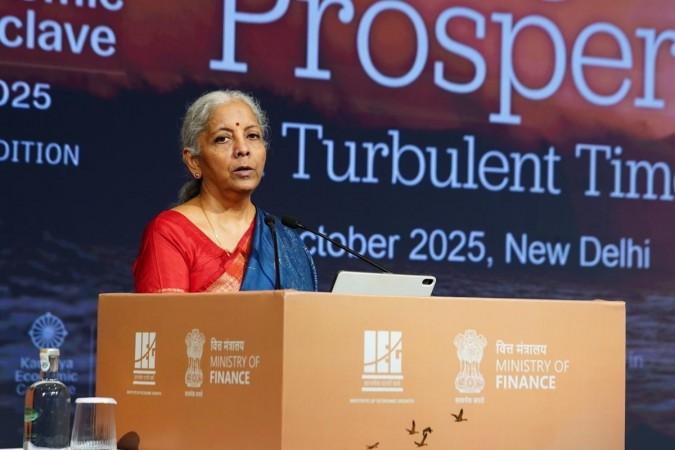
India's economic heartbeat thrives in its kirana stores, street vendors, and small workshops, collectively the unorganized sector, employing over 40 million people and contributing approximately 45-50% to GDP. Representing 84-90% of retail, these small, micro, and medium enterprises (MSMEs) are the lifeblood of local economies, fostering inclusivity and resilience. Yet, they face an existential crisis from mega conglomerates, organized retail, and gig economy platforms like Zomato, Swiggy, and Ola, compounded by systemic barriers like corruption, complex taxation, and judicial inefficiencies. This onslaught has driven small business owners into poverty, despair, and even suicide, while gig work traps millions in undignified, precarious jobs. By prioritizing systemic reform, small business protection, human dignity, and gig economy regulation, this calls for presenting a compelling, data-driven vision to empower the unorganized sector, enhance mass earnings, and fuel inclusive GDP growth by curbing conglomerate dominance.
Systemic Barriers: The Root of Small Business Strangulation
Corruption, complex taxation, and judicial inefficiencies form a chokehold on small businesses, enabling conglomerates to exploit systemic weaknesses. In 2024, 66% of businesses reported paying bribes, with 54% coerced, according to a LocalCircles survey. The GST regime burdens small firms with monthly compliance costs of ₹5-6 lakh, prohibitive for kiranas, as noted in a 2022 Print analysis. Mahesh Purohit observed that corruption stems from the complexity of tax laws and procedures and the monopoly of inspectors. A 2020 Science Direct study confirmed that bribery reduces profitability more than other factors. Judicial inefficiencies worsen the crisis, with 414 high court vacancies in 2019 and corruption in 40% of public interactions, delaying justice for small businesses. This drives emigration, with nearly 97,000 undocumented Indian encounters at the US border in 2023, a fivefold increase from prior years, reflecting distrust in institutions, as S. Jaishankar noted: "A lot of countries are nervous about the US immigration, but India must address no future in that country for citizens." A 2022 Migration Policy Institute report linked skilled emigration to weak institutions and declining law and order. Dismantling these barriers is paramount to create a fair playing field for small businesses.
Small Business Extinction: The Conglomerate Threat
The unorganized sector, holding 84-90% of retail and employing 92% of the workforce, faces extinction from organized retail's expansion, which grew from 5% market share in 2010 to 10-12% in 2023, projected to reach 14-18% by 2025. A 2007 ICRIER study found unorganized retailers near organized outlets suffered 10-20% sales declines, with 50% of Mumbai's small shops and hawkers at risk of closure. Anuradha Kalhan warned, "A small sample survey points to a decline in sales, threatening 50% of small shops with closure."Of India's 6.3 crore MSMEs, 98% are micro-enterprises, often unregistered, with productivity 25% lower than large firms, and 49,342 registered MSMEs closed by mid-2024, up from previous years. Joseph Stiglitz cautioned, "The entry of big retail can wipe out local economies if not regulated, as seen in developing nations where small vendors lose 30-50% market share." A 2022 Research Gate study warned of "terrific unemployment" in the unorganized sector, which contributes 10% to GDP. Conglomerates' predatory pricing and scale necessitate urgent protection for small businesses.
The Human Cost: Poverty and Dignity Erosion
The decline of small businesses inflicts profound suffering, pushing owners and workers into poverty and despair. Unorganized workers, earning 25% less in productivity-adjusted wages, face "inconsistent profitability" and often migrate for survival, per a 2014 ResearchGate study. The 2007 NCEUS report noted that market asymmetries render unorganized enterprises "less remunerative," driving helplessness. Kamal Nayan Kabra observed, "The unorganised sector faces several problems, all linked to the asymmetries of the markets, pushing many into poverty and helplessness." While retail-specific suicide data is limited, studies on economic distress suggest parallels with the 11,290 farmer and farm labourer suicides in 2022, reflecting severe psychological tolls. Emigration, fueled by despair, is rising, with 17.5 million Indians abroad and nearly 97,000 undocumented US border encounters in 2023. Restoring dignity through economic security is critical to counter this human toll.
The Gig Economy: A Conglomerate-Fueled Trap
The gig economy, projected to employ 23.5 million by 2030, absorbs displaced unorganized workers but traps them in precarious jobs. Platforms like Swiggy (over 450,000 active partners), Zomato (over 500,000 active partners), and Ola (over 1.5 million drivers, combined with Uber exceeding 2.5 million) exploit workers, with 43% earning less than ₹500/day post-costs and 90% lacking social security. Fairwork India (2023) found 66% of platforms fail to provide fair conditions, exposing workers to exploitation. A 2023 Sage Journals study noted platform cuts during Covid sparked strikes, exposing the "lie" of gig flexibility. Aditya Ray stated, "Built into gig labour are neoliberal entrepreneurial logics without security, leading to precarious life." Regulating these conglomerate-backed platforms is essential to weaken their exploitative models.
A Policy Revolution to Empower Small BusinessesTo defeat conglomerates and revive the unorganized sector, India must enact a citizen-centric policy framework:
Dismantle Systemic Barriers: Enact anti-corruption laws and digitize inspections to curb the 66% bribery prevalence, dismantling inspector raj. Raise GST thresholds to ₹1 crore for micro-enterprises, reducing ₹5-6 lakh monthly compliance costs.
Establish fast-track courts for MSME disputes and legal aid, addressing 414 judicial vacancies.
Protect Small Businesses: Cap conglomerate market share in tier-2/3 cities to protect the 84-90% unorganized retail market.
Promote state-based enterprises through tax breaks and subsidies, fostering local competition.
State innovation hubs can support MSMEs' technology adoption.
Restore Dignity with Wages and Securities: Mandate minimum wages (₹800-1,000/day urban) and social securities (insurance, pensions) for unorganized and gig workers, raising conglomerate costs to level the playing field. Retrain gig workers for micro-enterprises, reducing platform reliance.

Bridge Financial Gaps: Close the ₹20-25 lakh crore MSME credit gap with microfinance and collateral-free loans.
Empower Through Technology: Subsidize digital tools for kiranas, leveraging their eagerness to adopt technology.
These policies enhance mass earnings, as the unorganized sector employs 92% of retail workers, unlike conglomerates concentrating wealth.
Economic Imperative: Local Prosperity Fuels Growth
The unorganized sector's 45-50% GDP contribution dwarfs organized retail's 10-12%, driving equitable consumption. A 2018 Academia study emphasized small retailers' role in low-income markets. Arun Singh stated, "The rate of recovery will be determined by the strength of the recovery of small business." Revitalizing MSMEs can propel GDP beyond 7% projected for 2025, countering rising closures and emigration.
A Vision for Inclusive Prosperity
India's unorganized sector, battered by conglomerates and systemic failures, holds the key to inclusive prosperity. By dismantling corruption and taxation burdens, capping conglomerate dominance, promoting state-based enterprises, ensuring fair wages and securities, and empowering MSMEs with credit and technology, India can restore dignity and economic agency. The NCEUS warned that unorganized enterprises risk "disappearance from the market." Let India choose a future where its kiranas and vendors thrive, powering a vibrant, equitable economy.
[Major General Dr. Dilawar Singh, IAV, is a distinguished strategist having held senior positions in technology, defence, and corporate governance. He serves on global boards and advises on leadership, emerging technologies, and strategic affairs, with a focus on aligning India's interests in the evolving global technological order.]








